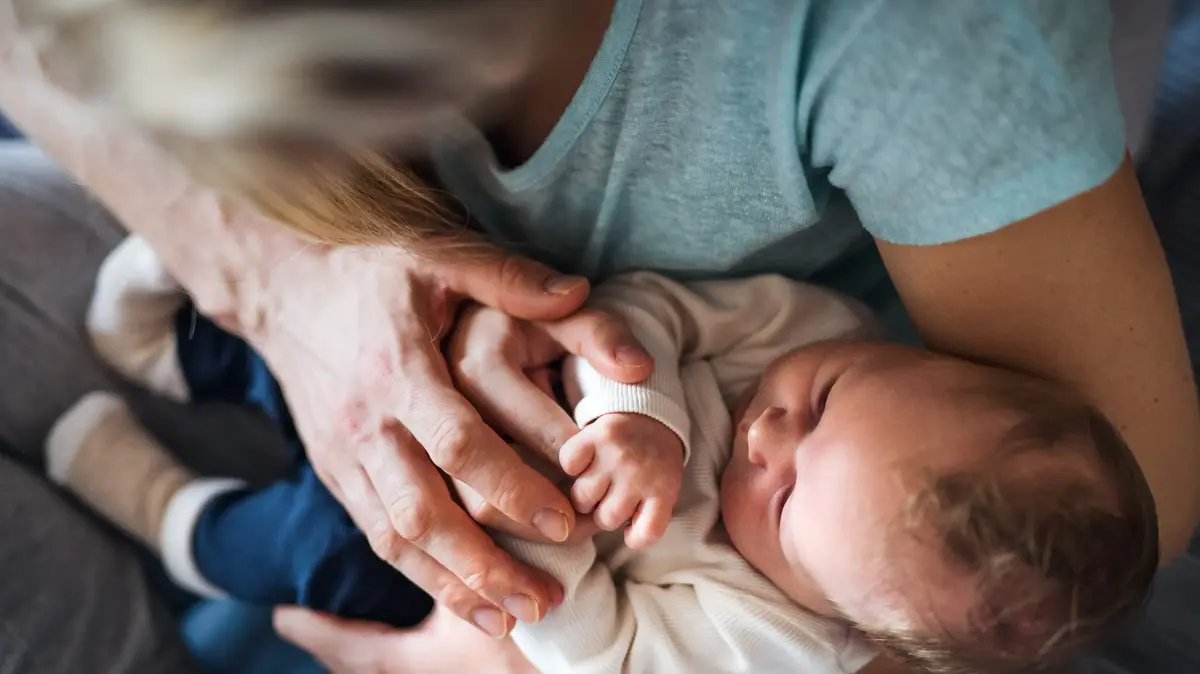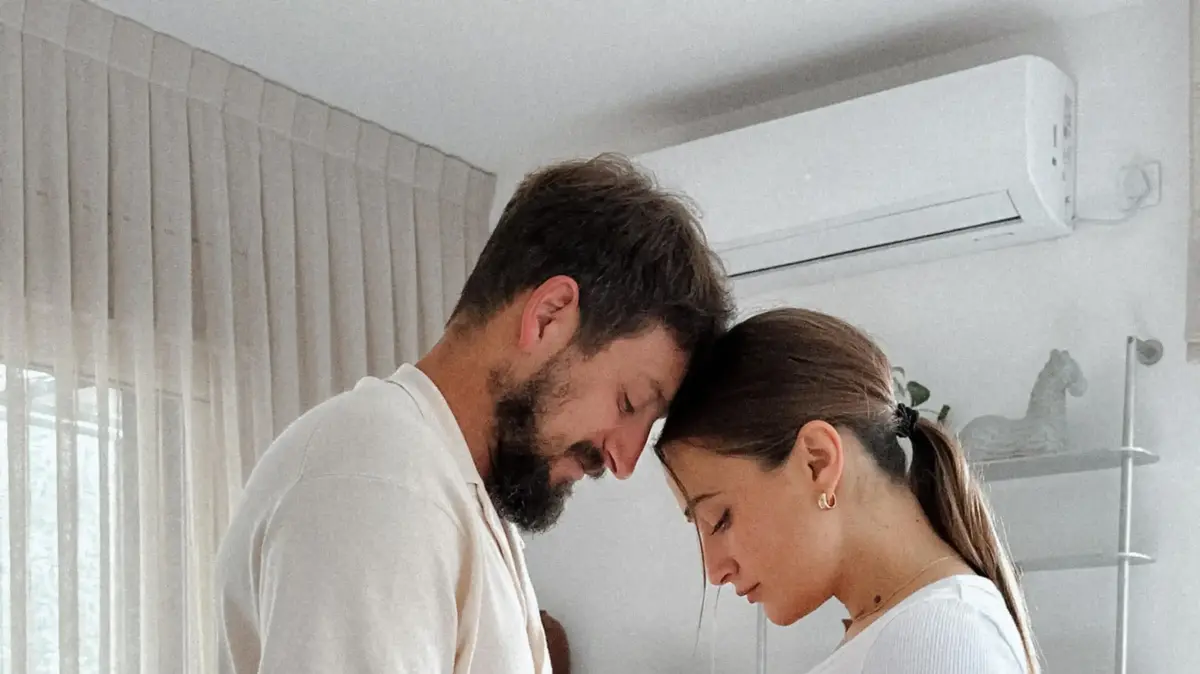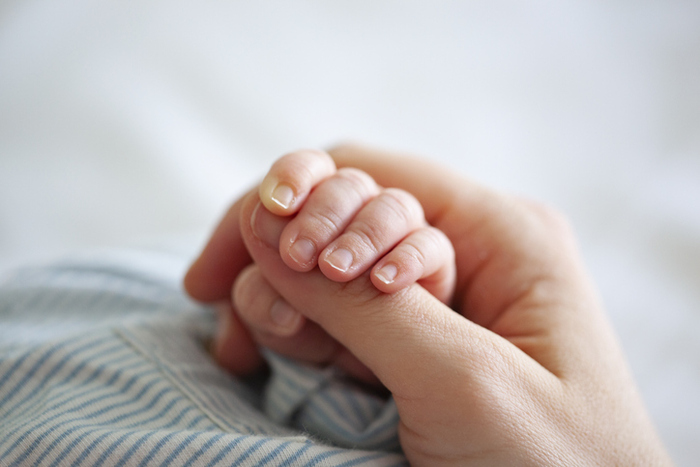health
Pregnancy and Birth
For the first time in the world: a baby is born with a corona that has been mutated after birth
The rare case that occurred a few days after birth, when the baby was in infancy, raises questions about the change in attitude towards pregnant women as a particularly critical risk group.
Tags
Corona
covid-19
Birth
Pregnancy
Walla!
health
Tuesday, 02 March 2021, 11:25
Share on Facebook
Share on WhatsApp
Share on general
Share on general
Share on Twitter
Share on Email
0 comments
Fire: We will consider legal action against Pike News distributors on ...
Parents and children protest in protest of the partial opening of ...
PM: "Opening of studies - in the coming days, year ...
Netanyahu: 90% of people aged 50 and over must be vaccinated within ...
A doctor examines a young girl's tongue
Senior British scientist: The variant could harm the vaccines ...
As a sign of protest for not returning to school, classmates ...
Dr. Jess Andrea
Sex tips from the dancing doctor Dr. Faith Cost
Edelstein: Workers in places with an audience will have to get vaccinated or ...
A Wi-Fi trick that will make kids clean the house
In the video: Recommendation for vaccinating women who are planning a pregnancy or fertility treatment (Photo: Sheba spokeswoman)
Cases of pregnant women who became infected with corona and transmitted the disease to the fetus have recently been discovered in Israel and around the world.
Although they are still considered rare, one such case of a pregnant woman who infected her fetus stunned experts, precisely because of what happened after the infection.
The case in question is of a Swedish woman who was recently evacuated to hospital with a suspicion of COVID-19 after suffering from sudden and severe abdominal pain.
Doctors at Skuna University Hospital in Malmö, Sweden, noticed that the unborn baby had an abnormally low heart rate, which could be a sign that the baby was not getting enough oxygen.
The doctors performed an emergency caesarean section and gave birth to the baby within minutes.
Blood tests from the baby confirmed that he had very low oxygen, and corona tests performed on him and the mother showed that they were both infected.
The findings were published in The British Journal of Obstetrics and Gynecology.
More on Walla!
New study: Pregnant women can transmit corona virus to baby
To the full article
By examining a stick from the throat of the mother and the newborn, the doctors sequenced the genome of the virus to confirm the possibility that the baby was infected with COVID 19 in the womb, and found that it was identical.
Because the baby was isolated from the mother immediately after the cesarean section and did not come into contact with other family members when these tests were done, the findings confirmed that the baby did indeed become infected before birth.
More on Walla!
Why are more pregnant women sick in Corona now?
Double Challenge: The Complete Birth Guide in the Corona Period
How to choose the most suitable seating system for your living room?
However, a few days later, new genetic sequencing showed that the baby's virus population had changed and contained a mutated version of the virus along with the original virus strain from the mother.
Dr Mahrin Zeigham, who participated in the study, wrote on the Science Alert website that to the best of her knowledge, this is the first case of a genetic change of the corona virus as part of the transmission of the disease from mother to fetus before birth.
A rare case that needs to turn on a red light.
Expired (Photo: ShutterStock)
Zeigham added that although virus mutations are commonplace, this mutation (called A107G) occurred only five days after the baby was born.
According to her, the genetic changes may be due to the baby coming into contact with the external environment outside the mother's womb, but they happened with surprising speed.
The mother recovered from the corona and was discharged four days after birth, but the baby needed care in the neonatal ward because he was born at week 34 of pregnancy.
The baby developed antibodies against the virus and had no severe symptoms after birth.
It is the baby's immune system that has neutralized the virus because no antibodies have been found in breast milk.
Dr Zeigham explained that the most important findings in this case were the changes in the placenta, half of which was damaged, it was inflamed and corona virus protein was present in it. Although these are rare cases, the placenta manages to protect most fetuses, "We suggest that we may need to rethink how we monitor pregnant women who have COVID-19, and they should be considered a more important risk group than it is today."
Share on Facebook
Share on WhatsApp
Share on general
Share on general
Share on Twitter
Share on Email
0 comments









